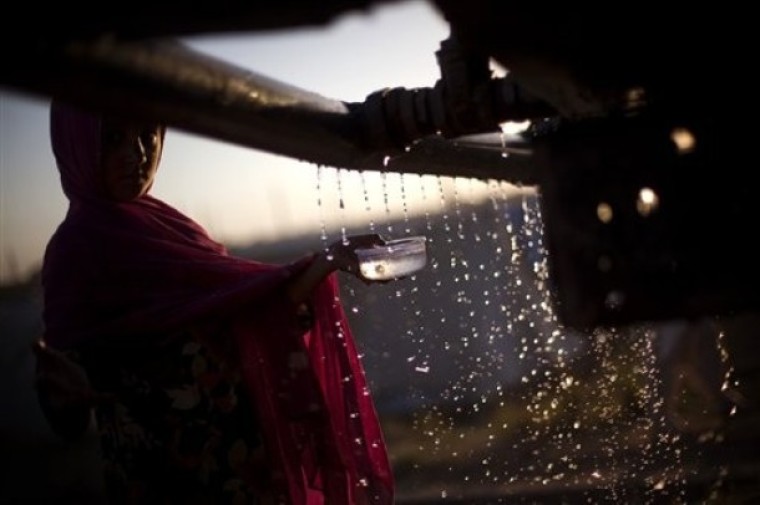
World Vision in a statement said the conflict involving militants in Pakistan has resulted in a massive movement of people fleeing for the safety of their families. "Many are pouring into camps that have an urgent need for clean drinking water, clothing, and food," the international Christian relief agency said.
The agency said it was leading large-scale, community-driven programs, funded by grants from P&G, to distribute 2.5 million PUR(TM) Purifier of Water packets to approximately 130,000 people.
It explained: "Each PUR Purifier of Water packet, a powdered product that reduces parasites, bacteria and other contaminants found in water, effectively transforms up to 10 liters of contaminated water into clean, purified water within minutes."
P&G through the Children's Safe Drinking Water Program, the signature program of P&G's Live, Learn and Thrive Cause, has partnered with Pakistani humanitarian groups to provide a total of 25 million liters of purified water.
"Pakistan is important to P&G's business and Pakistan is our single global manufacturing site for the PUR packets," said Greg Allgood, PhD, director for the P&G Children's Safe Drinking Water Program.
"P&G is responding to the Pakistan crisis with our largest emergency effort of the year with World Vision, one of our most important global Children's Safe Drinking Water Program partners, and Project HOPE, a long-standing partner in Pakistan."
P&G will provide a total of $326,000 in support to people living in the camps.
The executive director of corporate development for World Vision, Keith Kall, thanked P&G for its support when the humanitarian crisis in Pakistan is in the highest emergency relief level.
"There is an urgent need for more support for the internally displaced people of Pakistan, and we're thankful that P&G is doing their part to help by providing clean drinking water," she said.
World Vision said recent reports indicate an increase in the incidence of water-bourne diseases in the camps. "Given the crowded conditions, these diseases could rapidly spread to kill many people," the aid agency said.
According to it, PUR packets among displaced people in emergency camp situations have shown a reduction in diarrheal illness of up to 90%.